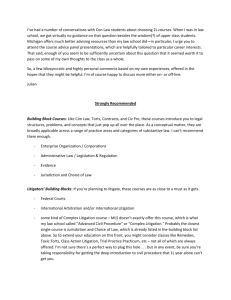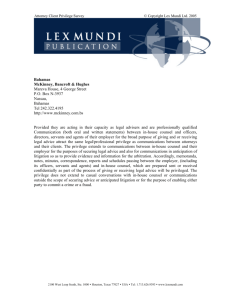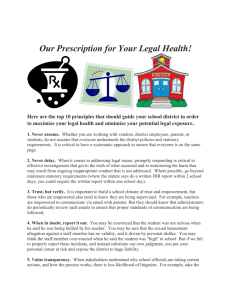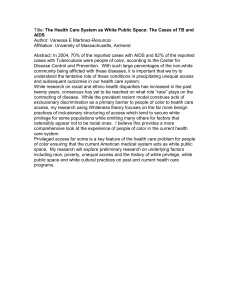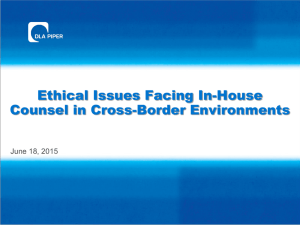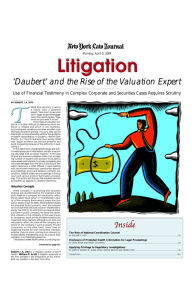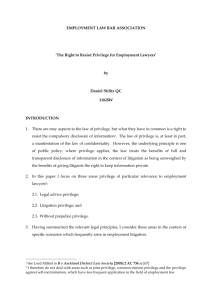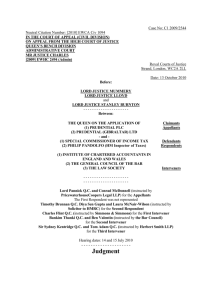Claiming Legal Professional Privilege
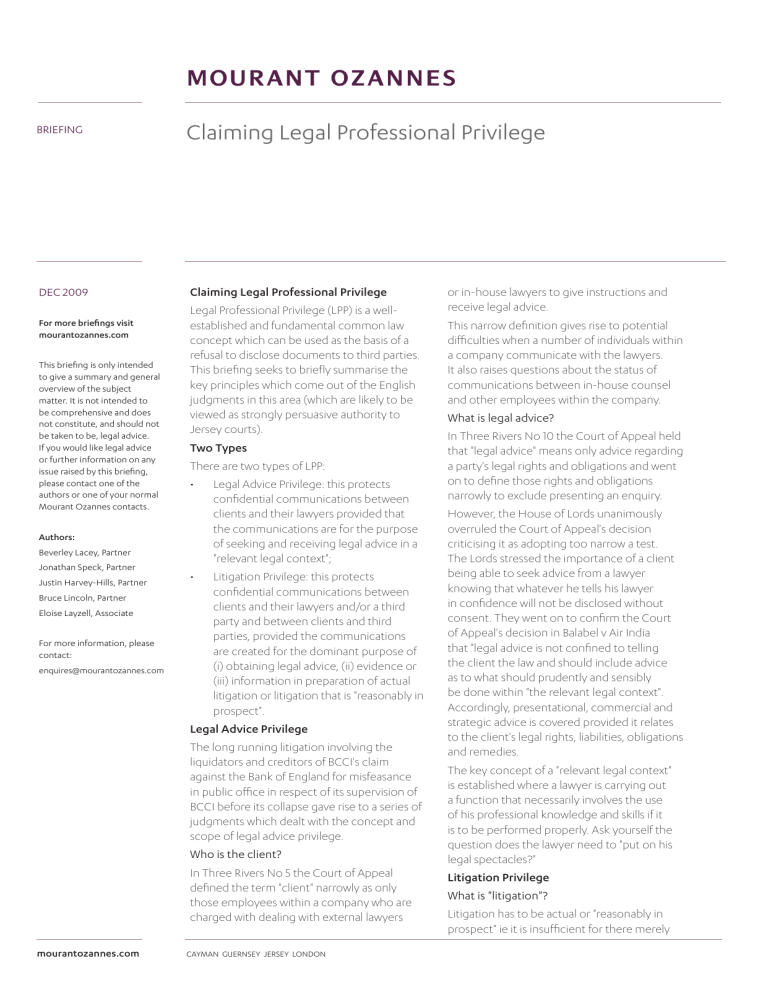
BRIEFING
Claiming Legal Professional Privilege
DEC 2009
For more briefings visit mourantozannes.com
This briefing is only intended to give a summary and general overview of the subject matter. It is not intended to be comprehensive and does not constitute, and should not be taken to be, legal advice.
If you would like legal advice or further information on any issue raised by this briefing, please contact one of the authors or one of your normal
Mourant Ozannes contacts.
Authors:
Beverley Lacey, Partner
Jonathan Speck, Partner
Justin Harvey-Hills, Partner
Bruce Lincoln, Partner
Eloise Layzell, Associate
For more information, please contact: enquires@mourantozannes.com
mourantozannes.com
Claiming Legal Professional Privilege
Legal Professional Privilege (LPP) is a wellestablished and fundamental common law concept which can be used as the basis of a refusal to disclose documents to third parties.
This briefing seeks to briefly summarise the key principles which come out of the English judgments in this area (which are likely to be viewed as strongly persuasive authority to
Jersey courts).
Two Types
There are two types of LPP:
• Legal Advice Privilege: this protects confidential communications between clients and their lawyers provided that the communications are for the purpose of seeking and receiving legal advice in a
"relevant legal context";
• Litigation Privilege: this protects confidential communications between clients and their lawyers and/or a third party and between clients and third parties, provided the communications are created for the dominant purpose of
(i) obtaining legal advice, (ii) evidence or
(iii) information in preparation of actual litigation or litigation that is "reasonably in prospect".
Legal Advice Privilege
The long running litigation involving the liquidators and creditors of BCCI's claim against the Bank of England for misfeasance in public office in respect of its supervision of
BCCI before its collapse gave rise to a series of judgments which dealt with the concept and scope of legal advice privilege.
Who is the client?
In Three Rivers No 5 the Court of Appeal defined the term "client" narrowly as only those employees within a company who are charged with dealing with external lawyers or in-house lawyers to give instructions and receive legal advice.
This narrow definition gives rise to potential difficulties when a number of individuals within a company communicate with the lawyers.
It also raises questions about the status of communications between in-house counsel and other employees within the company.
What is legal advice?
In Three Rivers No 10 the Court of Appeal held that "legal advice" means only advice regarding a party's legal rights and obligations and went on to define those rights and obligations narrowly to exclude presenting an enquiry.
However, the House of Lords unanimously overruled the Court of Appeal's decision criticising it as adopting too narrow a test.
The Lords stressed the importance of a client being able to seek advice from a lawyer knowing that whatever he tells his lawyer in confidence will not be disclosed without consent. They went on to confirm the Court of Appeal's decision in Balabel v Air India that "legal advice is not confined to telling the client the law and should include advice as to what should prudently and sensibly be done within "the relevant legal context".
Accordingly, presentational, commercial and strategic advice is covered provided it relates to the client's legal rights, liabilities, obligations and remedies.
The key concept of a "relevant legal context" is established where a lawyer is carrying out a function that necessarily involves the use of his professional knowledge and skills if it is to be performed properly. Ask yourself the question does the lawyer need to "put on his legal spectacles?"
Litigation Privilege
What is "litigation"?
Litigation has to be actual or "reasonably in prospect" ie it is insufficient for there merely
CAYMAN GUERNSEY JERSEY LONDON
mourantozannes.com
to be a "distinct possibility that sooner or later someone might make a claim" or that there was "a general apprehension of future litigation."
In addition, "litigation" is viewed by the courts as adversarial proceedings which are destined for a contested hearing in a court or court-like body. Proceedings such as letter of requests for evidence or proceedings against a third party for production of documents are distinct from this.
Dominant Purpose
When documents are created for more than one purpose, they will be covered by litigation privilege when the dominant purpose is for litigation.
Summary
The scope of LPP continues to be refined by the English courts. Most recently, the
High Court made a finding that legal advice privilege only applies to legal advice given by a lawyer and not legal advice given by a nonlawyer, ie an accountant. The decision is likely to be appealed, but it means that currently, for example, tax payers who receive advice on tax law from accountants and other non-lawyers have less protection than those receiving legal advice from lawyers. Those non-lawyers' advice is accordingly vulnerable to disclosure.
If maintaining legal privilege is important, lawyers and clients need to give careful consideration at the outset to how advice is given. Practical guidance and advice concerning issues of privilege and disclosure are found in the briefing entitled "Guidelines on discovery of documents in legal proceedings."
DATE 2010
